
Jewish tradition is one that marks holiness in time. One of the clearest examples of this is Shabbat. There are a myriad of ways we could approach and unpack Shabbat. Last week, our text guided us to, first and foremost, look at Shabbat as a way of keeping track of time.
What does time feel like?
- Time feels faster when you play video games.
- Time feels like happiness and sadness.
Who made time?
- It was accidental
- God because God created the world and time is a part of that
- Planets
- The big bang
- People
- Me
- Time comes from nowhere
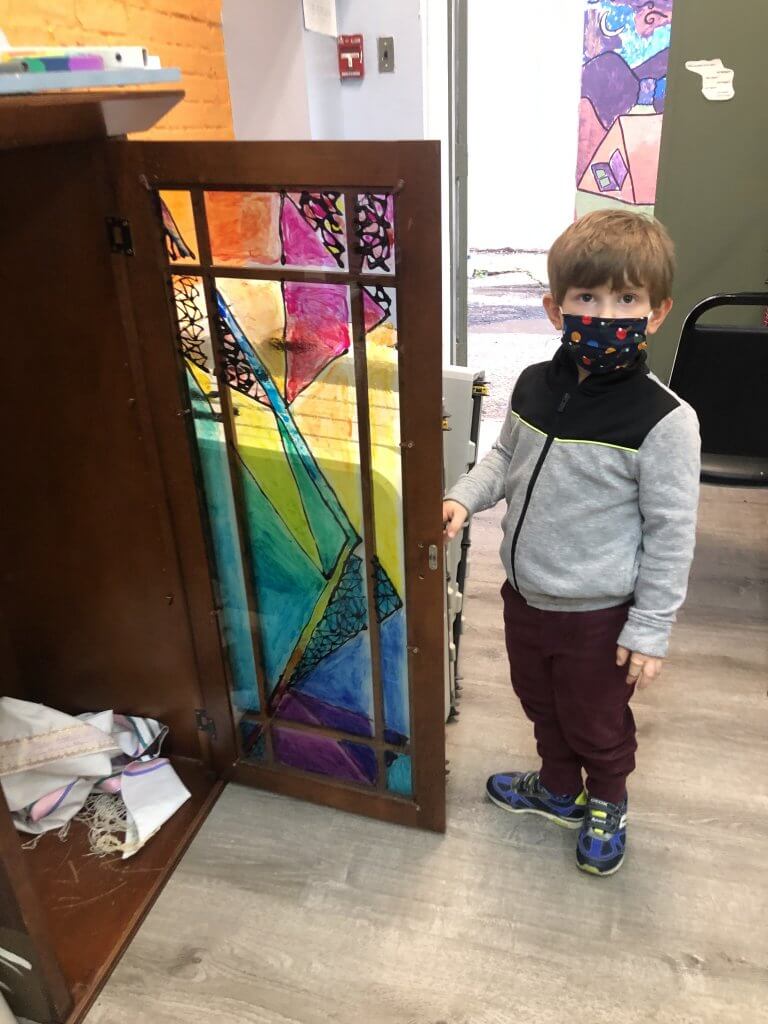
What day of creation do you think time was created on?
- The first day, because you can tell time when it’s dark or light out.
- The fourth day because you can’t have time without the sun and moon.
- The sixth day because humans invented time, and that’s when humans were created.
How do you mark or keep track of time?
- A clock
- Alexa and technology
- A newspaper because it has the date on it
- The sun
- Noticing changes from morning to night
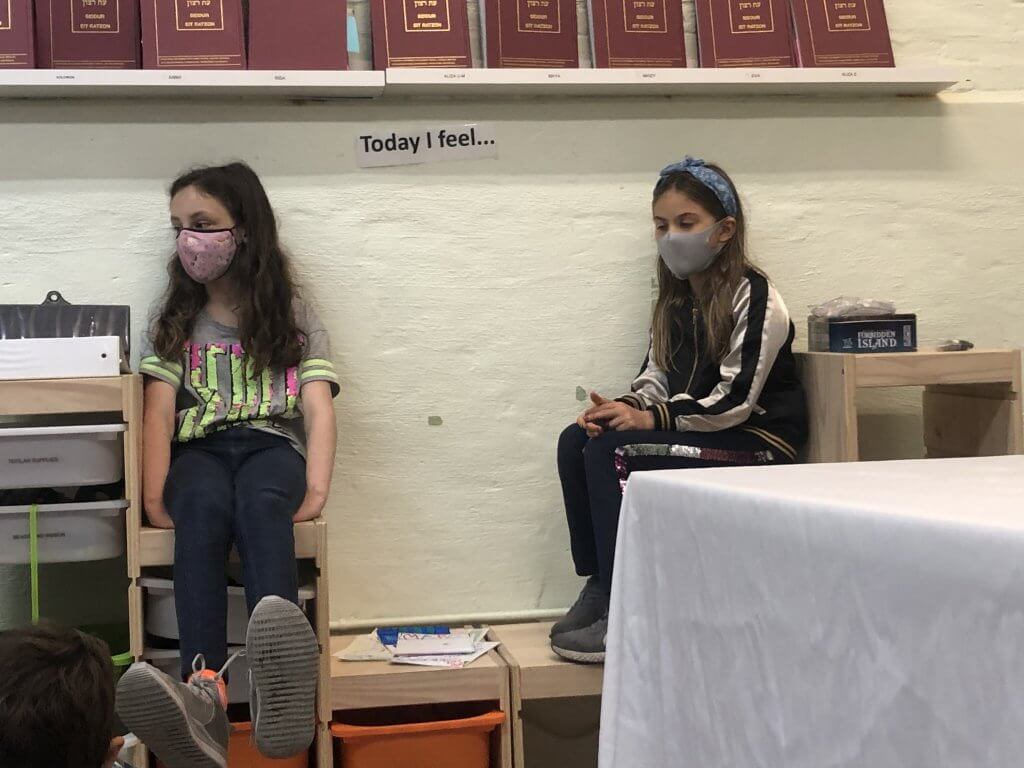
We read a commentary that asked, what do we do if we lose track of Shabbat? Some of our kiddos were incredulous at this idea. Just look at your watch or your calendar! We reminded our learners that there was a time before watches and clocks and digital calendars. Furthermore, the text brings up a scenario of a person wandering around alone in the desert, so there aren’t even other people around to help them remember what day it is. The text presents two opinions of what to do if we forget when Shabbat is. One option: count six days from when you realize you’ve forgotten and then keep Shabbat on the 7th day. The second option: keep Shabbat immediately and then count six days before doing it again (Shabbat 69b:4).
If you forget Shabbat, do you think you should celebrate on the first day and then count 6 days, or count 6 days and then celebrate Shabbat?
- You should celebrate it on the first day you remember because you haven’t celebrated it in a while.
- You should count 6 days first because then Shabbat will still be at the end of the week.
- You should celebrate it on the first day because you’ve clearly been stressed if you forgot about Shabbat and you should take a break.
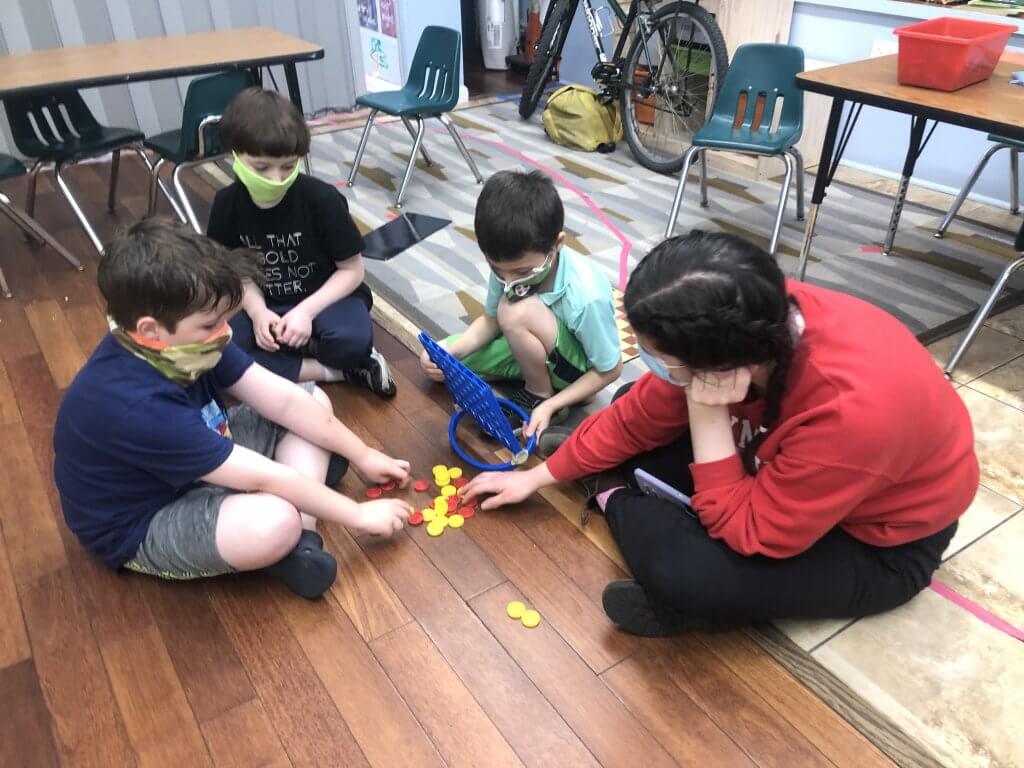
When are moments when we need to take breaks? How do we know?
- If it’s the weekend and you have some time off you should use it to take a break.
- If you’re working too much. No one should work all the time.
- If you’re playing your favorite video game for three hours, or in general if you’ve been doing something for too long.
- If it’s time for dinner.
- If you need to use the bathroom.
- If you’re so annoyed at work and you can’t stand it.
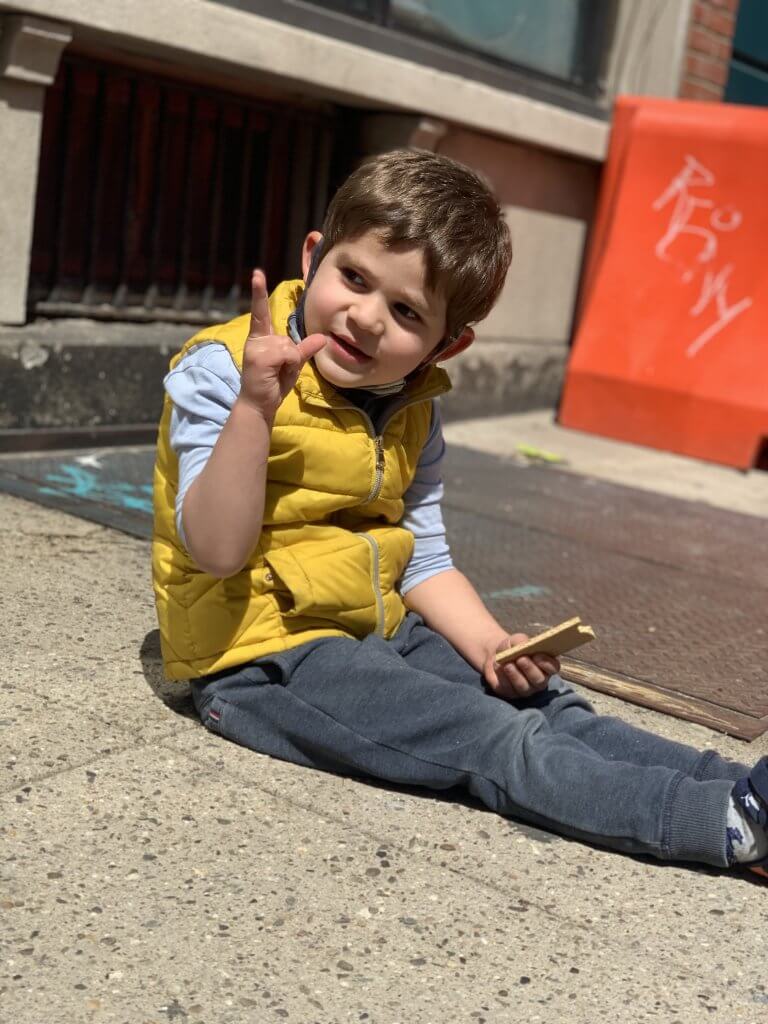
Why is it so important to celebrate Shabbat every 7th day?
- Because we care about shabbat.
- We need shabbat because we need to rest.
- It means the week is ending.
- I love challah and grape juice and time with my family.
- It’s important to have a day without screens and work.
- Some days might be bad, but Shabbat makes sure we’ll have at least one good day a week.
Taking a break or a pause like we do on Shabbat is a way that we can set aside time as holy and special. It marks that time as somehow distinct from the moments around it. Are there other days where you have holy moments that if you lost track of time you would want to make up for?
- Wednesdays because it’s a half day
- Chanukkah
- Pesach
- Memorial day
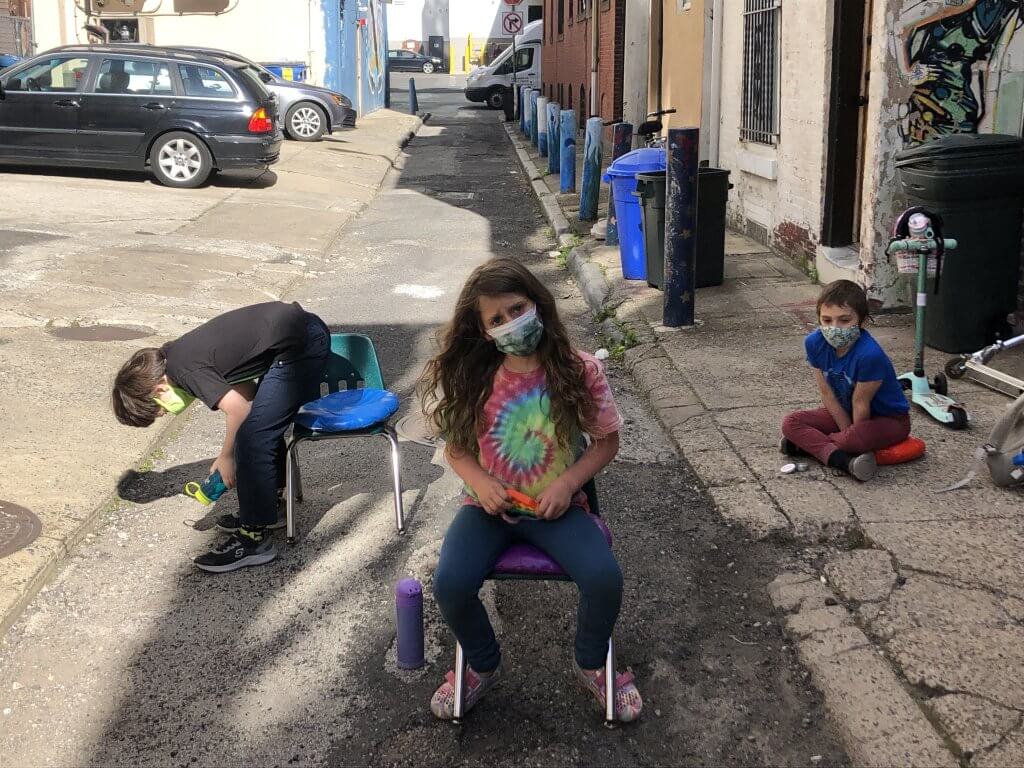
How do you make moments holy for yourself?
- Spend time with family and friends.
- Spend time doing things I like.
- Take a break and breathe.
- Spend time outside.
Whether it be Shabbat, another holy time in Jewish tradition, or a holy time of our own making, we hope we all have the opportunity to reflect on the holy moments in our lives, how we mark them, who we spend them with, and why they matter to us.
